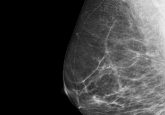The continuing evolution of technology in cancer care

Globally, cancer is increasingly becoming an urgent health issue. By 2030, it is expected that the worldwide cancer burden will grow by nearly 70% due to population growth and aging, with more than two-thirds of cancer deaths occurring in low- and middle-income countries [1,2]. In 2008, nearly 7.6 million people worldwide died from cancer. The reasons for global emergence of cancer as a challenge are only partly known. Changing environment, changing lifestyle, food habits, addictions and infectious agents may be deemed contributory [1,2].
In addition to disparities in the outcomes of individual cancer types in the developed nations, there are large differences in cure rates of cancer across the globe. Universal availability and access to prompt and quality care remain a global problem, albeit of varying proportions in different parts of the world. Several challenges such as inadequate resources, lack of healthcare systems, lack of trained personnel and lack of modern therapy options impede global and equitable care for cancer patients. Despite the predominant burden of cancer in developing nations, treatment and care of cancer in developing nations have not kept pace with the developed nations. A range of diverse and complex issues need to be addressed to improve this disparity in cancer outcomes [1].
Click here to view the full article in Future Oncology.





